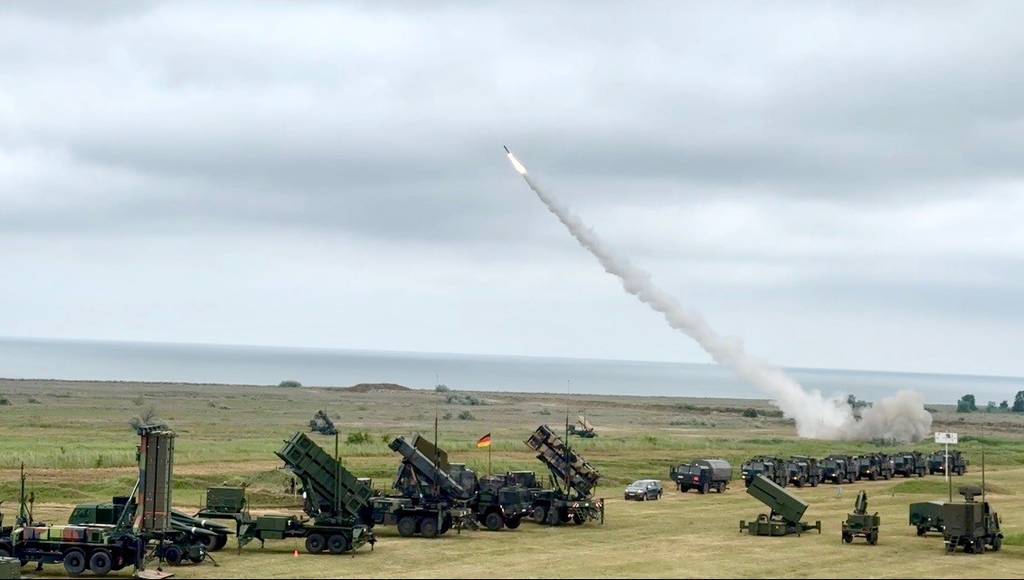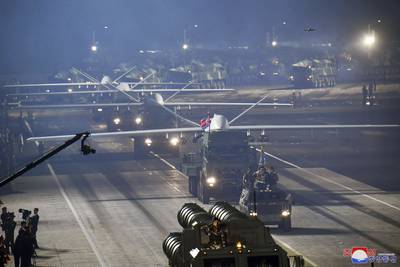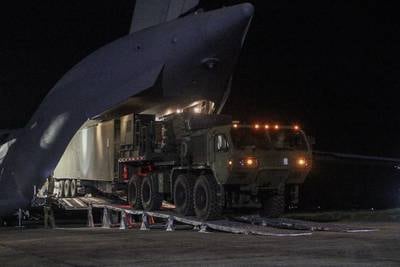Constanta, ROMANIA — Romania’s second Patriot air defense system is now ready for combat following its successful intercept of a target simulating a cruise missile during a live-fire exercise on the banks of the Black Sea.
On June 14, in cloudy conditions at the Capu Midia Training Range in the eastern part of Romania, the country’s Patriot fired a PAC-2 anti-tactical missile, successfully destroying an MQM-178 Firejet target drone.
The unmanned system, produced by the U.S.-based company Kratos Defense, went airborne using a pneumatic launcher and was propelled by two C81 turbojet engines “to simulate the flight characteristics of a cruise missile,” according to a representative of the Romanian military, who was narrating the exercise.
The MQM-178 flew over the area at a speed of roughly 200 meters per second and neared a distance of 60 kilometers (37 miles) in its attacker role against the Patriot.
Certifying the Patriot was a national objective identified by Romania’s Defence Ministry as part of the NATO-led Ramstein Legacy exercise that took place here this week. The U.S. State Department approved in 2017 the sale of seven Patriot systems and related equipment to Romania at an estimated cost of $3.9 billion.
The country has since established a dedicated Patriot unit within its army, with Romanian operators having undergone both individual and collective training in the U.S. and Romania respectively.
According to officers within this unit, who spoke on the condition of anonymity, the testing period for one Patriot system here is between four to six months, which includes the last step of going through a live-fire test.
One soldier told Defense News that the most challenging part wasn’t learning how to operate the Patriot, but rather maintaining the system to ensure it is operationally ready.
A number of Romanian military participants here noted the Patriot system is effective due to the significant size of the territory the forces are charged with defending. Indeed, Romania is one of the largest countries in Europe. It shares borders with Bulgaria, Hungary, Moldova, Serbia and Ukraine — the latter of which is fighting off a Russian invasion — and features a 245-kilometer coastline along the Black Sea.
Elisabeth Gosselin-Malo is a Europe correspondent for Defense News. She covers a wide range of topics related to military procurement and international security, and specializes in reporting on the aviation sector. She is based in Milan, Italy.








